“People who have been made to suffer by certain things cannot be reminded of them without a horror which paralyses every other pleasure, even that to be found in reading a story.”
“It is doubtless to such moments of humiliation that we owe men like Robespierre…The intense hatred that animated Julien against rich people was about to break forth.”
Stendhal, The Red and the Black
“The victorious cause pleased the Gods, but the vanquished cause pleased Cato.”
Roman Proverb
(Continued from Part 1)
Academic Agent has conceded the point that Trump is, at the very least, superior to Biden “from the point of view of practical politics, price of bread, and so on.”
Trump may shore up the American state. This could be a good thing. Western states are not our perennial enemies. Our beloved Freikorps were anti-communist paramilitaries deputized by a government of Social Democrats. States are a tool like any other, not the One Ring. They can be used productively. Of all the positions to retain from your embarrassing libertarian phase, theories about not voting so as to deprive the state of its legitimacy are the most debilitating.
I’d still contend that Trump’s success threatens “Boomer Truth.” The race-neutral civic-nationalism that he champions can be built upon. American politics is not, was not, does not have to be inherently colorblind.
But for now, I digress. Parvini was never the main target of my critique anyway.
Let’s return to a central question. Are our enemies sincere, or cynical?
“The values of the weak prevail because the strong have taken them over as devices of leadership.”1 So begins Sam Francis’s Leviathan and Its Enemies — the “Das Kapital of the Alt-Right” — and in this aphorism we find his entire philosophy.
“Managerial behavior appears as decadence, degeneracy, cowardice, appeasement, pandering, or guilt, but what is an evil, misguided, or suicidal pathology to the “conservative” forces who are still shaped by the older codes and institutions in fact reflects the interest and the health of the forces centered around the creation and control of the new society.”2
Unlike Paul Gottfried, who was principally influenced by Carl Schmitt’s ideological conception of the political, Francis retained residues of James Burnham’s structuralist quasi-Marxist perspective on political economies.
“According to Sam, these elites would approach the myths as nothing more than ladders for their own ascent…
“My own view, which I defended to Sam, may be summed up briefly: a political theology of the Left permeates our social, commercial, and cultural relations; this substitute religion is particularly prevalent among our elites, who browbeat others into accepting their deeply held beliefs.”
What I like about Francis is his southernness. He was, down deep, a fire-eating, culturally Presbyterian populist radical. But this disposition lends itself to overly conspiratorial thinking. Francis’s cynicism can be credited to his experience in Republican politics.
“Sam may have espoused this grim view partly as a reaction to the conservative movement that both of us came to despise. As conservative institutions and publications began lurching leftward, they became ever more insistent that they represented “permanent things” or “natural rights.” What the two of us discerned in this movement claiming to represent the Right was the cynical use of “values” language as a means of holding on to donors and flattering Republican electorates. And even before we perceived this, we noticed the intellectually lazy appeal to metaphysical abstractions among those who wrapped themselves in the “conservative” mantle. Sam may have been so turned off by these spectacles that he devised a theory of managerial dynamics that accorded with his experience. In his theoretical world, moral ideals are the means by which clever elites exercise power. Sam may have extrapolated from what he found among American conservative activists; our two national parties only added confirmation to his judgment that the quest for status rules the world.”3
Like most paleoconservative polemicists, Francis was wounded by the failures of the Reagan years. I agree with Gottfried on the matter of the idealism of the left. It is wrong to compare their motivations to those of the controlled opposition.
Gottfried saw their sincerity firsthand, coming out of the academy. What leads him astray are his self-professed “bourgeois modernist sympathies.”4 His conservative German Jewish disposition can be too much at times.
“It goes without saying that Sam is more of a populist democrat and less of a bourgeois conservative or liberal than I. But these differences seem tolerable. As for the possibility of making over the managerial state into a conservative force (he thinks it’s possible but I don’t)...”5
The problem with libertarians is they give up before they even try.
Leftism does not necessarily follow from the existence of a federal leviathan, as Gottfried asserts. “Hard-managerial” regimes of the right have existed in history. Wokeness is not a conspiratorial superstructure inevitably sprouting out of “neoliberalism”, but the militant enforcement of egalitarianism. This outdated civil religion was itself created to cover for the influence of foreign interests in Washington, London and Canberra.
(The polemics against “Leviathan” that both Sam Francis and Bronze Age Pervert engage in miss the mark. It is the Hobbesian nation state, and its individualist social ontology, that our rulers revile. They want to subject us to the parochial and obscurantist rule of INTERFAITH LEADERS.6)
At other times, Francis conceded that successive leftist generations were more sincere.
“As Mosca and Pareto both acknowledged, elites typically “really believe in” the ideologies and formulas they espouse…
One of the major differences between the theory of elites and simpleminded conspiracy theories is that the latter almost always postulate hidden groups of conspirators who do not believe in the ideas they use to gull and manipulate the masses. In elite theory, political formulas tend to become ideologies that take on a life of their own and push behavior of their own accord, without conscious or deliberate fraud or calculation of interests by those who accept them.”7
Joe Biden’s worldview is informed by Joe Scarborough’s inebriated gibbering8. Donald Trump runs on Fox News, to the point that Tucker Carlson structured his monologues around the President tuning into the last five minutes of his show before Hannity. The postwar dispensation was built by television, and will be dismantled by the internet.
The occupational class is not powerful because their ideas are good, but because bioleninism is self-replicating, before it junks society. Their sickening sentimentality, is a genuine point of weakness for the system. New generations do not have the emotional maturity to negotiate with us, to contain our momentum, at least in the Anglosphere.
By the end of his life, Francis rode the white-nationalist circuit, a brooding Cassandra banished from Dubya’s GOP. He saw few prospects for an American renaissance — a structuralist to the end.
“The new elite and its non-white allies have weakened or destroyed the belief systems, moral values, cultural legacies, and social bonds and institutions that made whites conscious of who and what they are and sustained within them a determination to survive and prevail. Until such mechanisms can be rebuilt, there appears to be little prospect of whites overcoming or even adequately recognizing the threats and challenges they face today, and those mechanisms cannot be rebuilt as long as the managerial elite remains in power…”9
I don’t blame Francis for his pessimism. Things certainly looked more bleak in 2005. The full court press smear job he endured would have destroyed my will to live too. But from 2024, it looks utterly unwarranted.
For a thinker who approached “Right-Wing Modernism (TM),” Francis’s assumption rests on too many traditionalist, Aristotelean, Burkean, and communitarian assumptions. He retreated from the Other Side of Modernism he so wonderfully celebrated in a tribute to James Burnham.
Intellectually speaking, the American Right during the Cold War was an alliance between traditionalists, anti-communist hawks and free-marketeers. As a hawk, Burnham kicked against the other legs of the fusionist stool, who stressed free-markets or religious instruction as paths to an “ordered liberty.”
Traditionalists in particular doubt that men can remake the conditions of their existence. I agree with this so far as it comes to racial or sexual differences, but this sort of conservative thinking is utterly wrongheaded when it comes to politics. Their fear of reformers and romantic heroes — “the Prometheus of Shelley and Marx, the Zarathustra of Nietzsche” — is too often bowdlerized into an excuse for learned helplessness.
You can’t vote for Trump — that’s unconservative! But I digress. The sheer amount of resources wasted by the Christian Right on philosophical circlejerks and self-defeating polemics is truly depressing.
“Most of the journalism and propaganda that has issued from the New Right and neoconservatives cannot be taken seriously as political and social thought. Orthodox traditionalism rejects modernism, but does so in a manner that is largely alien and inexplicable to the modern mind and tends to degenerate into cultism.”10
Modernists avoid contentious discussions of unknowable goods. They often share the traditionalists’s bleak view of man, but refuse to ground it in “moral absolutism” or “metaphysical or rationalistic methods of inquiry” as opposed to historical or empiricist heuristics.
They are inspired not by Aquinas and Aristotle, but Hobbes, Nietzsche, Conrad, and Pareto — the students of a “science of power.” History revealed to them that man’s unquenchable thirst for dominion could not be cured but only managed. Jonathan Bowden posed Nietzsche as the modernist counter-balance to Julius Evola for this very reason.
“There is a lot of religious elements in there of a perennialist sort that a lot of modern minds can’t accept. You see, Nietzsche is a switchblade, and nearly all people in this society are modern even if they think they’re not. Nietzsche is a modern thinker. Nietzsche is a modernist. Nietzsche can reach the modern mind. Nietzsche’s the most Right-wing formulation within the modern mind that people can accept.
My view is that people who accept Evola straight out aren’t living in the modern world. That’s not a criticism. It’s a description of where they are. I think for people to become illiberal they have to become illiberal first within the modern world. Some people would say you have to go outside of it. You know, the culture of the ruins and the revolt against the modern world, per se. But I personally think that we’re in modernity.”11
Traditionalists still believe that you cannot regulate the natural drift towards anarcho-tyranny without the inculcation of moral virtues. Burnham raised the Founding Fathers’ balance of powers as a more practical solution. Of course, the fact of indivisible sovereignty as articulated by Hobbes and Schmitt makes it somewhat irrelevant. Burnham found his way back to the fact of sovereignty through a bramble of conservative cope because, like Karl Marx and Murray Rothbard he was a conflict theorist. He recognized that societies were not bound up by shared norms and values, but based around systems of inequality.
For the purposes of this article, what Burnham got right was focusing on the individual selfishness of moderns as the operative factor in contemporary politics.
“While it is not being argued that populism as a postliberal democratic force can only prevail by avoiding divisive moral issues, this may be increasingly true of North American Anglophone societies. Without control of public administration, social programs, and the media, populists must pick their issues with exceeding care. They will have to focus on what is inoffensive to late modernist sensibilities but also on what captures electorates that fear violence and relative deprivation.”
Without the deeply entrenched race-feeling of our European friends, nationalists in the Anglosphere require different tactics for a different playing field.
Those whom populists must attract belong to a Hobbesian world: driven by the quest for commodity and the fear of violence, these electorates are capable of, at most, provisional allegiances. They follow those who dispel their fears and who convincingly promise to satisfy material needs.”
“The political class has forgotten that its subjects will serve it and its court religion to whatever extent it goes on feeding and protecting. As in Hobbes’s Leviathan, though subjects are materially driven and fear-obsessed, their loyalty is not unconditional. It is only there when their needs are being met—or, more precisely, when people believe this is happening. Fearful subjects have given up liberty for security, but they may regret this choice if the sovereign loses their respect. This Hobbesian understanding of the nature and limits of authority goes back to the dawn of modern political thought, and it throws light on the populist insurgency that now confronts the managerial state.”12
We must identify a revolutionary constituency kept down or otherwise unprotected by the elite.
All rulers were rednecks once — or if you don’t believe in that degree of social mobility, have been disfavored by society at one time or another. The tree of liberty will be refreshed with blood, and a natural aristocracy will rise from the ruins.
The Revolutionary Subject
“The sentiment that is very inappropriately named equality is fresh, strong, alert, precisely because it is not, in fact, a sentiment of equality and is not related to any abstraction, as a few native ‘intellectuals’ still believe; but because it is related to direct interests of individuals who are bent on escaping certain inequalities not in their favour, and setting up new inequalities that will be in their favour…”
Vilfredo Pareto, The Mind and Society
Let’s start by clarifying that right-wing oikophobia is a dead end, kept alive by the influence of Russian propagandists over the scene.
“Many Americans become tempted to ally with a foreign power in the hope of defeating the Deep State from without. This is wrong for a number of reasons; firstly, a country has a lot of ruin in it, there is no historical correlation between foreign defeat and domestic collapse, the USSR was an anomaly and perhaps only stage 2 of 100 year long Russian collapse. The Ming, the Ottomans; they both fell very low indeed, at huge cost to the pride and livelihood of their patriots, before collapse and it was only positive political activism by reformers which saved the day. Secondly, foreign powers may find the U.S empire more congenial to work with than any restorationist government, if you are China, it is good that the CIA is mainly run by easily blackmailed gay men and that congress is bribe-prone and selfish; it is a fair trade for the trifling attempts at 'regime change' you must sporadically endure.”13
One can interpret Vladimir Putin, with his rhetorical antifascism, historical autism and insistence on international legality as a failed revolutionary — a boomer Tsar fit for his boomer nation. Do not identify with his kleptocracy. It is better to accuse your domestic enemies of being a fifth column, degrading our states on behalf of foreign nations — which happens to be true.
No one else is coming to save you. What we are searching for now is a concrete social and economic base for our movement. Groups disadvantaged by the current dispensation.
The New Right of the 1980s closely resembled the New Left of the 1960s. Sam Francis quite consciously followed in Marcuse’s footsteps when looking for the implicitly right-wing victims of our regime. He stumbled on Donald Warren’s postbourgeois “Middle American Radicals” as a revolutionary subject to reinvigorate the American nation-state.
“Marcuse and Francis face a similar challenge: they have to identify some social group capable of overthrowing the unified elite, but since they have described the status quo of the democratic West as a totalitarian system of domination that incorporates, co-opts, or diffuses all challengers, where is such an independent social force to be found?”
“The traditional Marxian proletariat is not such a group because it has been bought off by the welfare state, accommodationist labor unions, and the consumer economy, Marcuse says. Thus, if the proletariat has been co-opted, the uncompromised, down-and-out lumpenproletariat is the last hope for revolution, under Marcuse’s theory.”
60s leftism was the cause of the postproletariat. Francis’s heroes, conversely, were found amongst the lumpenbourgeoisie.
“Nearly all Alt-Right thinkers embrace some variation of the Who? Whom? thesis, usually a racialized variation... For Samuel Francis and other populist extremists, the “who” is not the entire white race but only the Middle American Radicals, that is, the alienated white working-class postbourgeoisie that will dominate the hard managerial regime of the future.”14
Sam Francis stressed that we should not march under the banner of conservatism, but that of “the Right”:
“A post-conservative movement of change that required mass mobilization and the timely arrival of appropriate leaders… counter-revolutionaries, who would unseat the managerial class and restore what they could of the pre-managerial past.”
He aspired to “the creation of a less revolutionary form of managerial rule.” Whether or not that is a euphemism for certain controversial 20th century forms of political economy is up to you.
A significant part of our constituency was created by the “Revolution of Mass and Scale.” Middle American Radicals lacked the technical skills to control mass organizations, but were also not of the teeming mass, squeezed between high and low. They are “socially and psychologically” alien to those in power, and their impoverished feudal clients. We are left with the remnants of the bourgeoisie, the state-bearing peoples of the long 17th-Century.
The traditional constituency for nationalism and classical liberalism. An aspirational class, and radically self-conscious about it. An adolescent section kept down by dogma.
“The so-called ‘bourgeois’ did a lot more than act as shopkeepers. They were the people willing to risk their life and living to travel the world and settle huge swathes of it. They were by far the most vitalistic element of any European society, and the most willful. Attempts to restrict their ascendancy by a jealous nobility were implemented from the 14th century in the form of sumptuary laws. The role of the French revolution was to tear away these fake and gay limitations and throw a decrepit aristocracy to the wind.
‘Degeneration’ is a term thrown around all the time, but almost never in its proper use. As a caste that was wholly pathetic and inferior compared with their ancestors, the French nobles of the late 18th century were degenerate to the bone. Taking zero pride in their position beyond the legal privileges it gave them, the aristocracy and monarchy were content to sell titles to promising bourgeoisie. Marriages for wealth became commonplace, as the landowners found themselves increasingly impoverished as wealth left the land for trade and industry. The result was a slow drip of the country's best buying into a system of governing, made up of an elite with little interest in governing at all.
The tension that led up to the revolution was ultimately built on an increasingly illegitimate privileged class attempting to slow the takeover by a far more energetic and intelligent group of people. The distinction was not class, but ability. Every field in which the bourgeois was allowed entry, they eventually dominated. In an agricultural economy almost exclusively controlled by the aristocracy, the spirit of the 18th century bourgeoisie began the process that would completely circumvent this monopoly, and inadvertently transformed the entire economy into their own image; built on overseas trade and industrialisation.
It is a Marxist approach however to think this was the limit of a highly intelligent caste, or an inevitable process that was bound to happen. The industrial revolution was not characteristic of a bourgeois desire to ‘commodify’ everything either, don’t be stupid. It was perhaps the best example of an energetic and dynamic class circumventing the phoney restrictions placed on them. Likewise, the firm grip aristos held on land also saw the expressed desire for power projected into the New World and Asia. Men, some the sons of traders, some the second sons of impoverished nobles, felt perfectly vindicated in taking huge swathes of territory. In a classic rags to riches story, Robert Clive conquered Bengal in what he saw as a patriotic act, and a chance to make himself a rich and all-powerful figure. When asked about his vast personal fortune he had acquired as an officer, Clive simply remarked “I stand astonished by my own moderation.”
Pay no attention to those who claim the ‘bourgeois’ lacked any martial ability. Exploration, industrialisation, commercialisation, colonisation, and imperialism were efforts by which these bourgeois attempted to escape the suffocating authority of a stagnant ruling class, whose own martial traditions had largely dwindled into nothing, and had largely been overtaken by the mercenary, condottieri, and private soldier. For this reason alone, it is improper to keep using the term ‘bourgeois’ or business class.
Rather, the closest historical comparison can be made to the New Men of the late Roman Republic; an emerging, wealthy, energetic gang of like minded men, ready and able to take the reins of power from an elite that relied solely on the rule of law to perpetuate their dominance. There are countless other examples in history of similar scenarios to France circa 1789. The condottieri in Italy, the Roundheads in England, and the Dutch against the Spanish. October 1917 is not one of them…15
Bronze Age Pervert talks a lot about the glory of piracy, but in a recent podcast Erik Prince corrected him — identifying dissident rightists as privateers, deputized by the nation to act in its interests, the antennae of the race.
It is more of a cultural identity than a coherent economic category. Thatcher’s loyal rebels. Nixon’s Hard Hats. I don’t mean people with a cowardly “middle class” sensibility either:
“The key characteristic of modernity is the decoupling of status and spirit. In Italy & Germany Führers emerged from the lower class. In the early-20th and 19th centuries banksters went on conquests in Africa. The SS was staffed by intellectuals with aristocratic brutality.”16
My Project 2025 piece was just the starting salvo. Dissidents have produced many Declarations of Independence, now is the time for our own Reports on Manufactures. Alongside the Federalist Papers, Alexander Hamilton’s magnum opus was his aforementioned report, outlining the technological and economic contours of the 18th Century’s world-system and what measures his new nation had to adopt to brave it.
We must locate and define an independent social force, ready for command, that cannot be co-opted. For now, I am sticking with Sam Francis’s revolutionary subjects.
They are kept down for now by the fact that they have something to lose. This is why they rarely express their politics through riots or retard rallies. They’re not very artsy people. They don’t have the aristocrat’s free time and pedagogy. But if you want bloodthirsty bureaucrats…
Ideally upper-class rightists educate the middle on how retarded their colleagues are. Because you need at least some people with managerial skills if you want to do anything. But Middle Class battlers have always been the real revolutionaries, because they have agency without satisfaction.
“Robert Clive and his heroic generation of Europeans weren’t pre-modern tribesmen who derived their genius from faith and the soil, contra Walther Darré and Yuri Slezkine, they were email workers and bankers making money from financial speculation and diplomacy. Dalrymple’s East India Company feels like a fascinating combination of Exxon Mobil, Mckinsey, and Executive Outcomes.”17
I believe in the aesthetics of the VOC and have since I was a boy.
We are, once more in an environment like that which produced the Dutch Empire. That great anarchy, brought on by the printing press and the great psychedelic afterglow of the Renaissance.
“The early 17th century was a time of troubles in many places. In Europe it culminated in the Thirty Years War, which dragged on for another 14 years after Wallenstein’s assassination, reducing Germany to one vast charnel house. In the British Isles, it was a time of internecine conflict — known variously as the Great Rebellion, the Puritan Revolution, the English Civil War, the English Revolution, or the Wars of the Three Kingdoms — that produced just under five years of republican government (the Commonwealth), followed by dictatorship under the “Lord Protector” Oliver Cromwell. In France, Cardinal Richelieu battled the Protestant Huguenots at home and the Catholic Emperor Ferdinand abroad. In China, the same period saw the fall of the Ming dynasty, its control of northern China lost to the Jurchen leader Nurhaci, its fate sealed in 1644, when the rebel Li Zicheng captured Beijing and the last Ming emperor hanged himself.”
I was taught to celebrate this by my expatriate Protestant schoolteachers, and I hope children today still are. Concurring with the “Age of Reason” was the spread of ribald superstitions, the rise of Götz von Berlichingen18 — and the rebirth of the buccaneering operator.
“The great anarchy of the 17th century came to an end in 1648, as the European states agreed (in the two treaties known as the Peace of Westphalia) on new terms that tended to strengthen the sinews of sovereignty, limit interference in neighboring states’ religious arrangements, and bring the instruments of violence back under state control. Even so, much of the European expansion in the rest of the world remained the domain of private corporations until the mid-19th century.
“It is not clear how near or far a comparable Westphalian moment is today. But my hunch is that the world is much closer to the Death of Wallenstein than to the Birth of Westphalia.”19
Most of the piece recommended by Land is standard Niall Ferguson — and he’s not a great columnist. Lazy connections between superficially similar moments across time. Wow… History… But he is correct about the threats to the hegemony of the managers. A situation foreshadowed by Burckhardt’s Renaissance — a conflict reopened by the Reformation. The victors of the religious wars were “progressive” cultural Calvinists, and I believe that the sons of Adolphus and Cromwell can guide us through the impending catastrophe. Fanatical Millenarians who uncovered conspiracies and rose up against a universal empire, convinced they were serving God and Reason. A local rebellion evolving into a multi-theatre world war, the victory of the pirates and privateers against the Popes.
Nationalists, conscious ethnic vanguards, are traditionally minorities in multifaith empires. Do not treat your temporary dispossession as the culmination of a long defeat, but merely another episode in the eternal struggle for power, supremacy and civilization.
The success of the Salvadorian despot Nayib Bukele reveals the room for opportunity that exists in our post-Westphalian situation. Dissident elites can terraform small countries, where less capital is required for a regime change. Small states like Hungary, Japan, Australia and Denmark exist as nativist exemplars for the rest of the west.
We see small polities producing leaders more dynamic than anyone you’d find in sclerotic super-states like India or South Africa. A climate of creativity unrivaled since the Renaissance, coming upon us again!
After Paleoconservatism:
The idealism of the elites is a whitepill. The people in charge are incapable of rationally pursuing their own self-interest. Suicidal altruism is at the heart of their ideology. Language conditions thought.
My point is that adopting the “values of the weak” breeds weakness, and that the right should police itself of this tendency.
“In the United States there’s still nothing better than being an intelligent white man with ambition and curiosity about the world. Young white men remain the most energetic, intelligent, and charismatic sector of society. The problem is not that we’ve been locked out of leadership positions but that many of us labor under delusions about our own place in the world and simply lack direction and motivation after years of subjection to demoralizing public school nonsense and our sclerotic civic religion. The solution, which can be provided by BAM as well as Machiavelli, is to fire ‘our guys’ with energy and ambition before sending them off to attain worldly glory. There remains lots of fun ways to navigate the American Cursus Honorum…
The most energetic and ambitious of my generation will find ways of overcoming contemporary restraints and obstacles to secure exciting careers and positions of influence.
As a general rule, the more success they find, the less connection they will feel with your lifestyle complaints. The American Cursus Honorum can be extremely fun! Before he became the Secretary of Defense Christopher Miller overthrew the Taliban on horseback.
The swashbucklers who do their best to maintain American primacy into the 21st-century aren’t going to look with much sympathy on Auron Macintyre boo-hooing about how white men aren’t given quotas for being a scheduled caste. The joys and promises of a world to come is the one front in the war for the souls of this rising generation where we can never be outcompeted by our opponents.
But we will never beat the leftists at their own game; whining plaintively. And the more we try, the more we bleat about unfair the world is, the less influence we will have in shaping the next generation of winners.”20
The private operators and boy-geniuses who bring about the New Order will not resemble the “dissident right” commentators who shape the discourse on X. A procession of inexorably bitter cynics slighted for government jobs just before their middle-aged noontide.
I want to be careful, because I find the old guard personally charming. Their labors in preserving a canon of the right and contributing to it cannot be understated. Today young people can pretty much exclusively read material written by “our guys” if they so choose. I’m just critiquing their excessive negativity and their reactionary self-conception. Their memories of personal defeat are mixed into their political polemics. We return to Dr. Nietzsche for a diagnosis:
“They are all men of ressentiment, these psychologically impaired and worm-eaten men, a totally quivering earthly kingdom of subterranean revenge, inexhaustible, insatiable in its outbursts against the fortunate…
“The “well-born” simply felt themselves the "happy"; they did not have to manufacture their happiness artificially through looking at their enemies, or in cases to talk and lie themselves into happiness (as is the custom with all resentful men); and similarly, complete men as they were, exuberant with strength, and consequently necessarily energetic, they were too wise to dissociate happiness from action—activity becomes in their minds necessarily counted as happiness — all in sharp contrast to the "happiness" of the weak and the oppressed, with their festering venom and malignity, among whom happiness appears essentially as a narcotic, a deadening, a quietude, a peace, a “Sabbath,” an enervation of the mind and relaxation of the limbs,—in short, a purely passive phenomenon.”
“While the aristocratic man lived in confidence and openness with himself, the resentful man, on the other hand, is neither sincere nor naïf, nor honest and candid with himself. His soul squints; his mind loves hidden crannies, tortuous paths and back-doors, everything secret appeals to him as his world, his safety, his balm; he is past master in silence, in not forgetting, in waiting, in provisional self-depreciation and self-abasement.”
“A race of such resentful men will of necessity eventually prove more prudent than any aristocratic race, it will honour prudence on quite a distinct scale, as, in fact, a paramount condition of existence, while prudence among aristocratic men is apt to be tinged with a delicate flavour of luxury and refinement; so among them it plays nothing like so integral a part as that complete certainty of function of the governing unconscious instincts, or as indeed a certain lack of prudence, such as a vehement and valiant charge, whether against danger or the enemy, or as those ecstatic bursts of rage, love, reverence, gratitude, by which at all times noble souls have recognised each other. When the resentment of the aristocratic man manifests itself, it fulfils and exhausts itself in an immediate reaction, and consequently instills no venom: on the other hand, it never manifests itself at all in countless instances, when in the case of the feeble and weak it would be inevitable.”21
Reactionary conservatism, especially when it is flattened into a disposition is an ideology of ressentiment. As Bronze Age Pervert reminds us, ressentiment is not a synonym for ambition or vengefulness. It is the visceral reliving of negative experiences and emotions, a frustrated response to your own subterranean powerlessness that resurfaces in the language of “moral righteousness.” Nietzsche was, of course, inspired by Dostoyevsky:
“For forty years on end {the mouse} will recall its insult down to the last, most shameful detail; and each time it will add more shameful details of its own, spitefully teasing and irritating itself with its own fantasy. It will become ashamed of that fantasy, but it will still remember it, rehearse it again and again, fabricating all sorts of incredible stories about itself under the pretext that they too could have happened; it won’t forgive a thing. Perhaps it will even begin to take revenge, but only in little bits and pieces, in trivial ways, from behind the stove, incognito, not believing in its right to be revenged, nor in the success of its own revenge, it will suffer a hundred times more than the object of its vengeance, who might not even feel a thing. On its deathbed it will recall everything all over again, with interest compounded over all those years and…
But it’s precisely in that cold, abominable state of half-despair and half-belief, in that conscious burial of itself alive in the underground for forty years because of its pain, in that powerfully created, yet partly dubious hopelessness of its own predicament, in all that venom of unfulfilled desire turned inward, in all that fever of vacillation, of resolutions adopted once and for all and followed a moment later by repentance — herein precisely lies the essence of that strange enjoyment I was talking about earlier. It’s so subtle, sometimes to difficult to analyze, that even slightly limited people, or those who simply have strong nerves, won’t understand anything about it.”22
The internet is replete with underground men. Long ago, they were shut down by a good poster on the Salo forum, responding to a man blackpilled in the face of biological and ecological degeneration:
“If you truly think sitting on your ass and playing armchair quarterback is the way to live a dignified life, you'll get the existence you deserve. You have the same mentality as a LOSER who has never been behind in a do-or-die elimination game.”
There is a distinctive paleoconservative phenotype. A bookish dandy from the continent — one of the anti-communist races. Catholics are overrepresented. In America, neoconfederate nostalgists. The academics there are used to a world of pure ideas and not the cut and thrust of political maneuverer.
Again, I love these people, both interpersonally and intellectually. But maturity is approaching their faction not as “our thing” but a distinct historical subject worthy of both praise and criticism.
“In my philosophy sympathy multiplies misery. And if somebody’s in pain in front of you, you give them some options. And if they can’t get through it, suicide’s always an option.
“What he wanted to configure, was that we are the victims. And the problem with that is that it’s what everyone else does… But if you concentrate on pain and defeat, you will breed resentment. And I believe that resentment and pity are the things to be avoided.”23
No wonder they burned out. A lot of them got into paramilitary movements. That may have been the only option in the 1990s, but new possibilities have opened up since.
“In the late 20th-century the defenders of European civilization found they could only achieve military successes, and military success increasingly became the only thing they understood. While higher-brow literature and scientific think tanks like the Pioneer Fund plied an increasingly obscure and lonely trade in the United States (reversed for a brief and extraordinary period in the 1990s), fantasies of mass violence and military maneuver restoring white power proliferated; the face of the Right in America became militias and the Turner Diaries instead of Instauration and the white-shoe lawyers of the Immigration Restriction League. There are no intellectual or artistic heroes in the French counterpart to the Diaries, only a platoon of brave soldiers who go down swinging. The last hope of the South African hardliners, and the mainstay of all their zeal and energy in the closing years of their rule, were the various COIN operations of the SADF. John Birch society pamphlets and boosters rarely failed to mention the many high-ranking military officers in their ranks. Paradoxically, they were ceding the decisive ground to the enemy. The mandarins of the Egalitarian consensus were more than happy to continue their work in the domains of academia, law, and foreign policy while their Right opponents amused themselves in various ultimately inconsequential sandboxes. South Vietnam was defended for a decade by the blood and sweat of the American military and then destroyed in a matter of months by the machinations of lawyers and diplomats. The seizure of Algeria by the Generals’ Junta did nothing to unseat Fanon, Sartre, and Franz Boas from their positions in the capitals of Europe.”24
As Richard Hanania’s revisionism shows, the shortcomings of the western thaw were entirely contingent ones. Here is a friend’s favorite passage from J’accuse, explaining where we went wrong:
In the late 21st century, the fruits of the 1960s cultural revolution were contested. Licio Gelli as much as Hayek was in the limelight when the USSR collapsed. What ought to have followed was a second cultural revolution where the collection of ‘dissident’ theories replacing them could be unified into a new worldview; a “paradigm shift”. Instead, the outdated ideology of the 60s radicals survived as an empty, pseudo-religious public doctrine; while the novel advances in various fields were fragmented into ‘postmodern’ zaniness without a unifying grand narrative. The welfare state ought to have been refocused to selecting and patronising those identified as having inborn talent, instead it was simply dismantled except as a rent-seeking operation on urban decline.
I’ve said before that we should study the rise of the neoconservatives. We owe a lot more to them than we are willing to acknowledge.
We ought not to limit ourselves to attacking their philosophy, or penning yet another retelling of the Mel Bradford affair. The concrete story of how they assumed power merits examination.
Contrary to what some have suggested, they did not take over the GOP by simply existing and being Jewish, though that helped.
BAP has made the point that the vanquished write history more often than the winners do. This is largely true when it comes to right-wing histories of the conservative movement. This is mostly a good thing. Young rightists read Buchanan and not Buckley.25
The problem arose from the fact that scholars, picking up from Buckley and Kirk, continue to identify with and focus on the losers. The neocons did not think this way. They were Jewish strivers who clawed their way out of their New York ghetto in a generation, frightfully vain and ruthless.
Sam Francis’s old cope, that “the Old Right generally had the brains, but the neocons had the money” relieved him from all of his responsibility for the outcomes of the 1990s. Just look at how the neocons framed their ascendancy:
“When we act, we create our own reality. And while you're studying that reality—judiciously, as you will—we'll act again, creating other new realities, which you can study too, and that's how things will sort out. We're history's actors...and you, all of you, will be left to just study what we do.”
If a man said that to me, I’d follow him into battle. That sort of messianic self-confidence was key to the meteoric success of 20th-Century Jewry.
The paleocons did not think like this. They got drunk on their own reactionary polemics, and bought into an utterly self-defeating self-conception. To forestall this, you must guard yourself against outbursts of ressentiment.
“Just because most of the politics of this era seems to running well and truly against us does not mean that the situation is hopeless, because situations are never hopeless. Groups that have been done down or perceive that they’ve been done down by history have undergone worse traumas than we are undergoing at the present time.
The danger of the ideology of the victim, which I don’t really subscribe to except as a tactic on occasion, is that you begin to think like a victim, and you begin to act like a victim.”
There is a reactionary thought-policeman in your head, and he must be destroyed. When you think like he does, you are thinking like a person that things happen to.
“The problem with that is that it’s what everyone else does. And it can be done... But if you concentrate on pain and defeat, you will breed resentment. And I believe that resentment and pity are the things to be avoided.
Stoicism should be our way. Courage should be our way. When somebody pushes you, you push them back.”26
Do not forsake your considerable agency.
Some have posited that we are “the political equivalent of pagans during the late Roman Empire,” aristocrats fighting a rearguard action against an ascendant state bottom-up social movement. I disagree. We’ve been like the Roman Christians since the UNESCO statement on race.
See how this simple narrative reframing changes your perspective on politics?
Our system, that falsely presents itself as something “liberal,” has not produced a meritocratic recirculation of elites, but a mess of courtly etiquette every bit as stifling and sclerotic as the ancien regime’s. There may be cynics within the system, but history shows them conceding to the demands of the idealists every time. I saw the best minds of my cohort destroyed by The Guardian.
“Employers will not allow a school leaver to sit an aptitude test, or an IQ test, and will only accept a certificate from an increasingly baroque system of credentials…
Britain’s elite, then, is not being chosen for any particular intelligence, or creativity. What is being selected for is conscientiousness, and faith. The representative member of Britain’s governing class believes in ‘Law’ as a spiritual concept separable from humans and their politics. They put great stock in the certificates granted by official institutions, and are suspicious of auto-didacts and self-made arrivistes. This is not a class distinction, or an educational distinction, or a regional distinction – but a political one…
However deaf, boring and fanatical this class is, Goodwin still insists that theirs is the cause of modernity. They are the future…
Values, Voice and Virtue argues that opponents of the graduate minority have a ‘Traditionalist’ ethos, which means conservative values and a slower pace of life. This is counterposed with ruling class opinion, which wants dynamism, change, and excitement. This is dubious at best. We are reminded that much of Britain’s elite believes that jetliners are a frivolous luxury, that the economy should stop growing, and that we should seek to regress to a more agrarian pattern of life.”27
Comparing leftism to a religion is insulting to the great religions. Wokeism has no central text. But it is an unscientific ethical system, and is, at the very least, an ancien regime dating back to the second Roosevelt’s administration. Obscurantist, universalist, remote and outdated. Both faces of the monoparty are run by alcoholic clubbable bores.
“Waugh’s aristocrats all behave like intellectuals. I don’t think anyone in Brideshead Revisited ever once has a conversation about horses; yet they spend a huge amount of time banging on about God… These are people who worry about the state of their souls, suffer from terrible tedium vitae and get divorced. They are, in other words, left-wing…”28
Hence the importance of Saltburn. It rips the mask off, and reveals the “aristocrats” as they really are. Squeamish toffs who, in the end, will bend to the BRUTALITY of the besieged middle-class.
“I beheld the genius of this film and its true message. The hero is admirable precisely because he destroys the aristocracy and steals their wealth without becoming part of them. Without changing himself. Old corruption is swept away, he dances around naked and snorts cocaine alone. Favour is not won, compromises are not made. He is able to seduce the count’s daughter but does not content himself with ‘joining the family’ instead destroying it. The One Nation wing of the party is deselected. White's club is turned into a whore house.
“And he does it easily. Once the fox is inside the chicken coop, he finds that his crude tactics of sexual exploitation and intimidation are enough to overawe the poshos, who present themselves as worldly and wise but are individually timid and innocent. Much is done to imply that the poshos are secretly Dark, there is a scary footman and the centre of a maze in the grounds of the house has a statue of Baphomet. None of this piffle survives contact with the main character’s ruthless brutality. In the face of violence, they all crumble…
“Deliberate references are thrown in to Eyes Wide Shut - where an outsider encounters a secret society replete with animal masks and sex cults, and is frightened away by the threat of violence by a supremely competent Masonic order. It was cheering instead to see an Elite presented as flimsy and vapid, ripe for the taking. This is such an important point for those of us seeking a revolution in the structures governing us. There is no mystical power protecting the British establishment, we are the ones with agency; and those with the opportunity to must stay true to ourselves by destroying it instead of becoming part of it.”29
We should embrace the spirit and aesthetic of Trumpism. Eternal offense! MAGAmoms truly believe they are the protagonists of history. It is a healthy ethos.
Allons enfant de la patrie, Le jour de gloire est arrivé! Marchez, Marchez!
Of course, we disavow violence, as strongly as we disavow the fetishization of “enemy” world powers. But it should be noted that “middle-class brutality” is more targeted than the chimp-outs of the underclass or the theatrics of the controlled opposition. Black Lives Matter does not embody the “Bronze Age Mindset,” because they ultimately serve a higher power. When the election deniers had a grievance, they went straight for the halls of power.
So many political radicals construct their brands by attacking their more moderate allies. In a strange twist of fate, Trumpism is already more tactically radical than Spencer’s Alt-Right was. As a threat to the state and its legitimacy, Charlottesville was small potatoes compared to January 6th.
You should disregard the “aristocracy” meme. Countries without them (Australia, France), Hobbesian covenants formed from individual subjects, are much more meritocratic and progressive on racial issues than monarchical nations.
“A preoccupation with the aesthetics of the British establishment is not just a harmless distraction, it serves to neuters the natural political radicalism which should animate intelligent urban young men who are so badly served by the current constitutional arrangement…
You will never be a Hereditary Peer. You will never take part in a boxing-day foxhunt and you will never marry Sophie Winkleman. The rump of the British establishment that still exists is not only irredeemably corrupt but deliberately exclusive…
Nor should you want to. The most important politicians of the last century were vulgar lower-middle class tories; Thatcher, Tebbit, Powell. Take pride in your heritage. It’s a better way of life, free of pretension. The enormous televisions. The Hot Tubs. The German cars. The career in recruitment. Dining in the Shard. There is such joy to be had from honesty; a courage to embrace the pleasures of materialism which requires a maturity absent from the British upper class. The concept of ‘taste’ is a symptom of failure, a coping mechanism adopted in the mid 20th century to adapt to the financial ruination of the British aristocracy by the post-war Labour government.
Reject it. Reject the Windsorite baubles. Laugh in someone’s face if they declare themselves in possession of a ‘knighthood’ or an OBE. Play Tiktoks out loud in the ‘drawing room’. Buy up period properties and replace the sash windows with PVC triple glazing. There is no future in sentimental reactionary passions. The New Britain will be built on foundations of concrete, not stone.”30
We come back to another great Nietzschean canard, that you should become the best version of what you are.
“Is it just a decline, or is it a willed decline?.. That’s a debate that one can have, but one of the things that is most important to realize is that we have our own destiny before us.
There are more of us than ever before, we are better educated in the mass than ever before, unbelievable though that may sound…
We have to forget the last 50 to 60 years, but remember the lessons that we should draw from it… to believe totally in ourselves… Ourselves, we are the locomotive of our own destiny.”31
Moldbug makes the point that “everyone cool in the 20th century was a communist.” This isn’t necessarily true — in fact a cursory study of the pre-FDR American elite reveals they were very much our forefathers. But it is legitimate to view the Soviet Union as the protagonist of the 20th Century, reshaping the world in its image, the abyss staring into you. Movement conservatism was made up of ex-communists, which explains how it is organized to this day. A mess of front-groups, magazines and political cells.
Today Young Labor student groups are filled with people who made Oswald Mosley synthwave edits and posted Crusader memes in middle school. The ubiquity of gigachads, wojaks, the ongoing bastardization of the term “based.” The fact that every arts student at my university had a “Red Scare phase.” Mass culture is downstream from 4chan. This is an established fact by now.
If you look at our influence on the culture since 2016, it becomes clear that we are the only subculture with agency and vitality. We are the main characters of the 21st century. An uncompromising generation breaking down the blood-brain barriers of the conservative movement.
“It’s worthwhile to remember that the Bolsheviks in Russia did not precipitate the abdication of the Tsar. They were just a group of energetic and motivated young men with a cohesive vision for society and the mental agility and boldness to seize power when the opportunity presented itself. Opportunities will present themselves. You might just find that in 15 years everyone’s going to be too embarrassed to associate with Egalitarianism any longer, stranger things have happened. Egalitarianism only ever became the dominant ideology of the USA thanks to the fairly unpredictable confluence of the Great Depression, WWII, and a critical mass of highly motivated Jewish lawyers and professors. How many different guiding ideologies has the American government adopted over the course of its existence? None of these changes requires anything more violent than a presidential election and various important people convincing other important people of ideas they cared about.”32
2020 was a flaccid counterrevolution. Tiocfaidh ár lá.

A small fraternity of friends, who trust each other with their lives, can change the world. Navigating media ecosystems, electoral realignments and byzantine bureaucracies. Such small conspiracies have changed the world. Never forget that.

One of the great breakthroughs of Koselleck’s model of multiple temporalities, or histories in the plural is the notion that there is no knowable direction of history to be apprehended or mastered. This is a tremendously liberating discovery for history and for politics, although framing your goals as inevitabilities remains an essential rhetorical device.
When Napoleon met Goethe, perhaps the only other truly modern man to ever live, he reminded him that “fate is politics.”
“That politics is fate, that it is fate not in the sense of blind fatality, this is what the enlighteners fail to understand. Their attempts to allow the philosophy of history to negate historical factuality, to 'repress' the political realm, are Utopian in origin and character.”33
At the end of the day, human history does not remember the critic, the conservative, who does not get to set the narrative because he loses, or checks out. We remember the man in the arena, and not “those cold and timid souls who neither know victory nor defeat.”34
The old winds gather, and the lumpenbourgeoise of 2016, scattered across the west, gather for war.
Why identify yourself with the Castle Gormenghast’s doddering decadents, when you could imbibe in the Condottieri’s gusto?
“They must have been heroes of abnegation, natures like Belisarius himself, not to be cankered by hatred and bitterness; only the most perfect goodness could save them from the most monstrous iniquity. No wonder then if we find them full of contempt for all sacred things, cruel and treacherous to their fellows — men who cared nothing whether or no they died under the ban of the Church. At the same time, and through the force of the highest conceivable development, and won for them the admiring devotion of their followers; their armies are the first in modern history in which the personal credit of the leader is the one moving power.”35
The battle lines have been drawn, and there is no turning back. You might as well enjoy things.
“The point of this potted history has been to present the Postwar Consensus in its historical moment. It is a set of outmoded assumptions and dogmas whose animating force has passed away, none of which make much sense together anymore. The gerontocrats dementedly pursuing replacement migration against all logic and evidence are certainly harmful, but they are no more sinister than aging Communists putting on agitprop about Marxism in the run-up to Glasnost, or the deluded participants of the “Parallel Campaign” in the last days of Robert Musil’s Austro-Hungarian Empire. Their dwindling numbers of young loyalists are the same type of timid soul that clings to established but outdated doctrine in any age.”36
No, Messrs de Maistre and Jefferson, we do not have the government that we deserve, and we will take action to change that!
We have commenced down the conflict dyad that will last your whole life. The twilight struggle we will win for Western standards against Oriental despotism, Semitic obscurantism and sub-Saharan squalor.
I hope everyone had a Happy New Year. We have a lot of work to do.

“You may not have a halo over your head but you are transfigured in a sort of dark and sepulchral light, which makes you deeply spiritually ambivalent to people who exist now. And that contains the prospect of growth and the prospect of renewal.”37
https://www.amren.com/news/2019/08/managerial-revolution-elite-theory-immigration/
James Burnham, Suicide of the West
Samuel T. Francis, Leviathan and its Enemies
Paul Gottfried, After Liberalism
https://www.unz.com/pgottfried/sam-and-i/
See this SPLENDID trilogy for details:
https://www.amren.com/news/2019/08/managerial-revolution-elite-theory-immigration/
https://www.axios.com/2024/02/02/biden-obsession-morning-joe-msnbc-media
https://www.amren.com/news/2019/08/managerial-revolution-elite-theory-immigration/
Sam Francis, The Other Side of Modernism, from Beautiful Losers
https://jonathanbowden.org/speeches/q-a-on-renewing-the-radical-right-why-bowden-was-not-a-conservative-and-other-topics/
Paul Gottfried, After Liberalism
Thomas J. Main, The Rise of the Alt-Right
t. Sentinel of the Grave
https://tunisbayclub.com/index.php?threads/dissident-history.2619/post-26504
Mediate on the symbolic value of Guts from Berserk as a role model for Zoomer weebs now…
https://www.bloomberg.com/opinion/articles/2023-07-02/russia-s-farcical-mutiny-is-deadly-serious-for-iran-china-niall-ferguson?sref=htOHjx5Y&embedded-checkout=true
Friedrich Nietzsche, The Genealogy of Morals
Fyodor Dostoyevsky, Notes from the Underground
Jonathan Bowden, Credo
https://tunisbayclub.com/index.php?threads/decolonization-revisionism-the-third-european-civil-war.2077/post-21067
For the reasons why, see
https://www.commonwealmagazine.org/there-will-be-no-buckley-revival
Jonathan Bowden, Credo
https://dailysceptic.org/2023/04/26/populism-is-political-opposition-to-a-rapid-decline-in-living-standards/
https://jonathanbowden.org/speeches/western-civilization-bites-back/
https://tunisbayclub.com/index.php?threads/biggest-impact-activities-for-our-cause.2089/#post-20711
Reinhart Koselleck, Critique and Crisis
Teddy Roosevelt
Jacob Burckhardt, The Civilization of the Renaissance in Italy
https://jonathanbowden.org/speeches/western-civilization-bites-back/




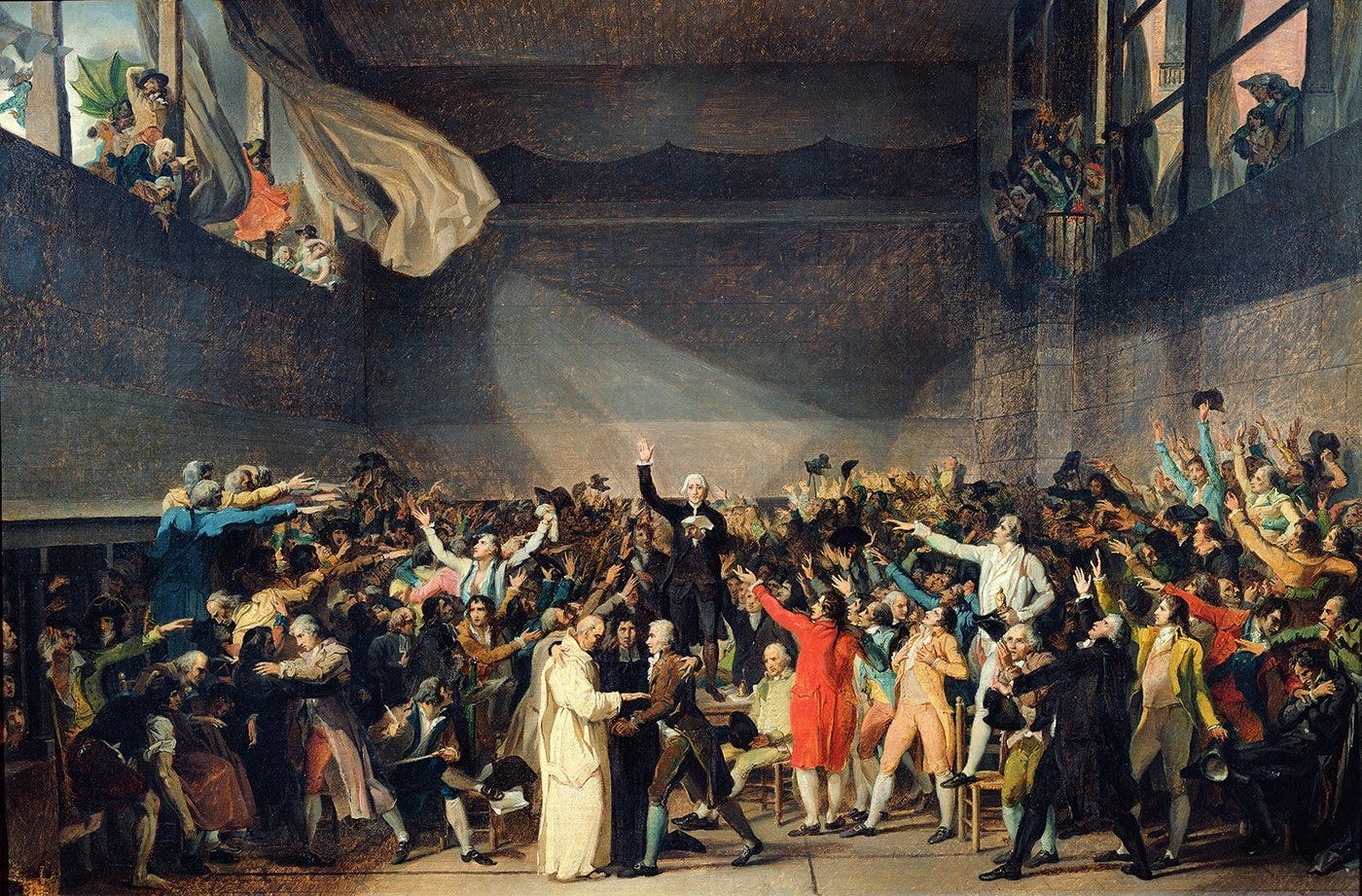



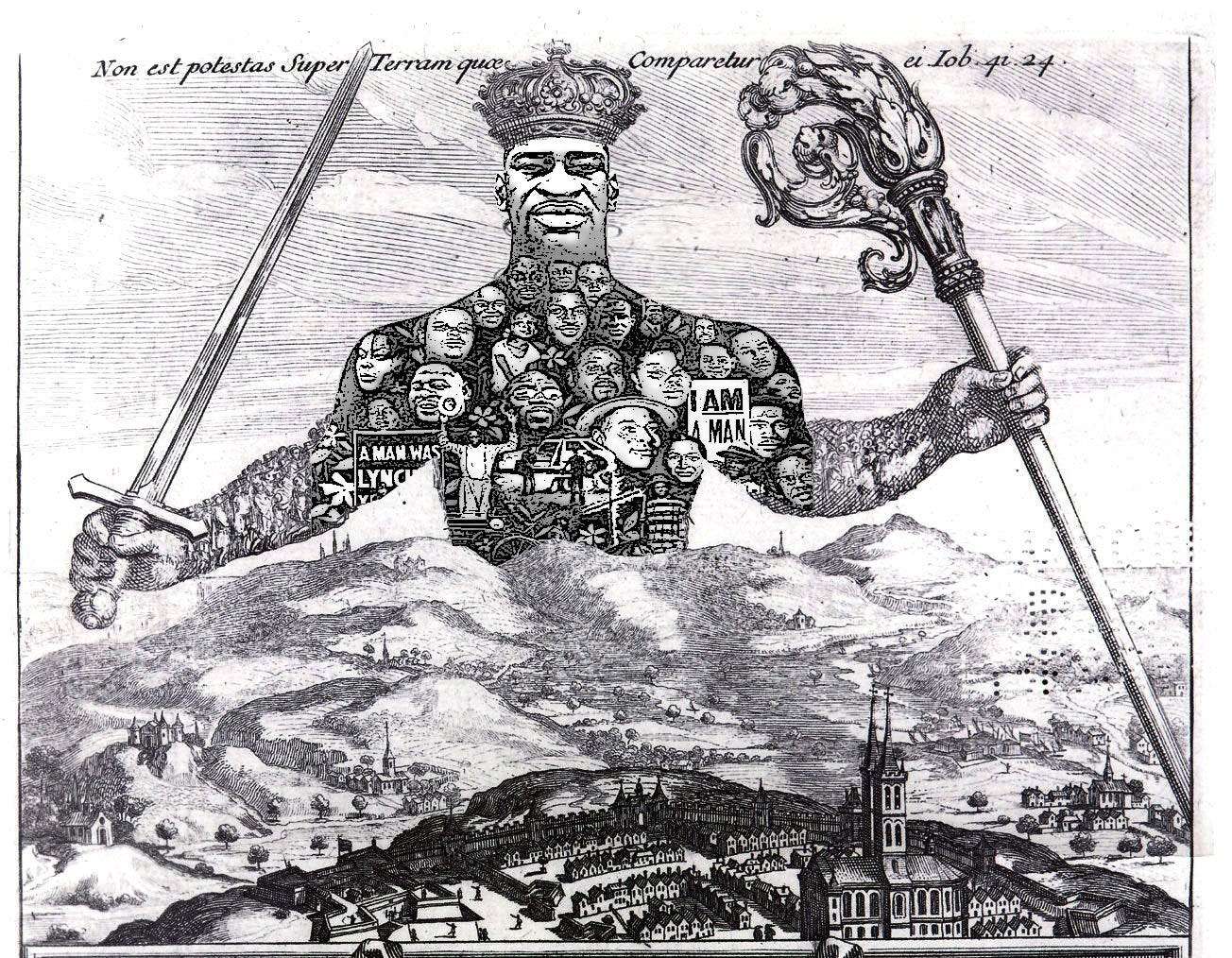

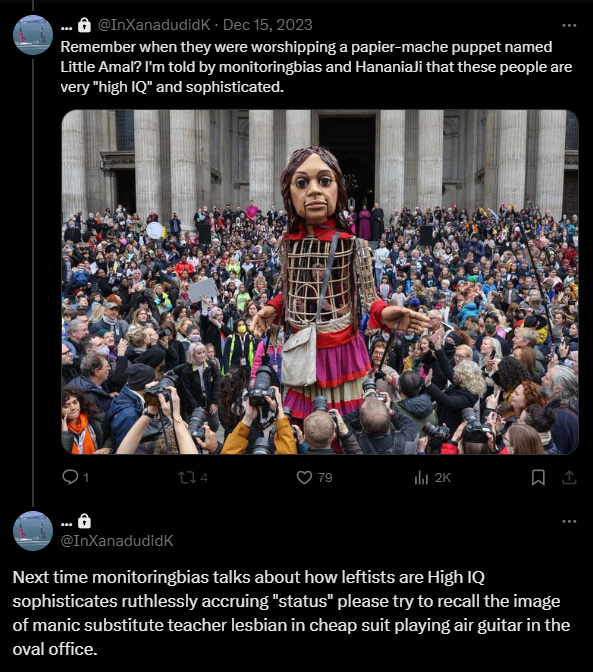



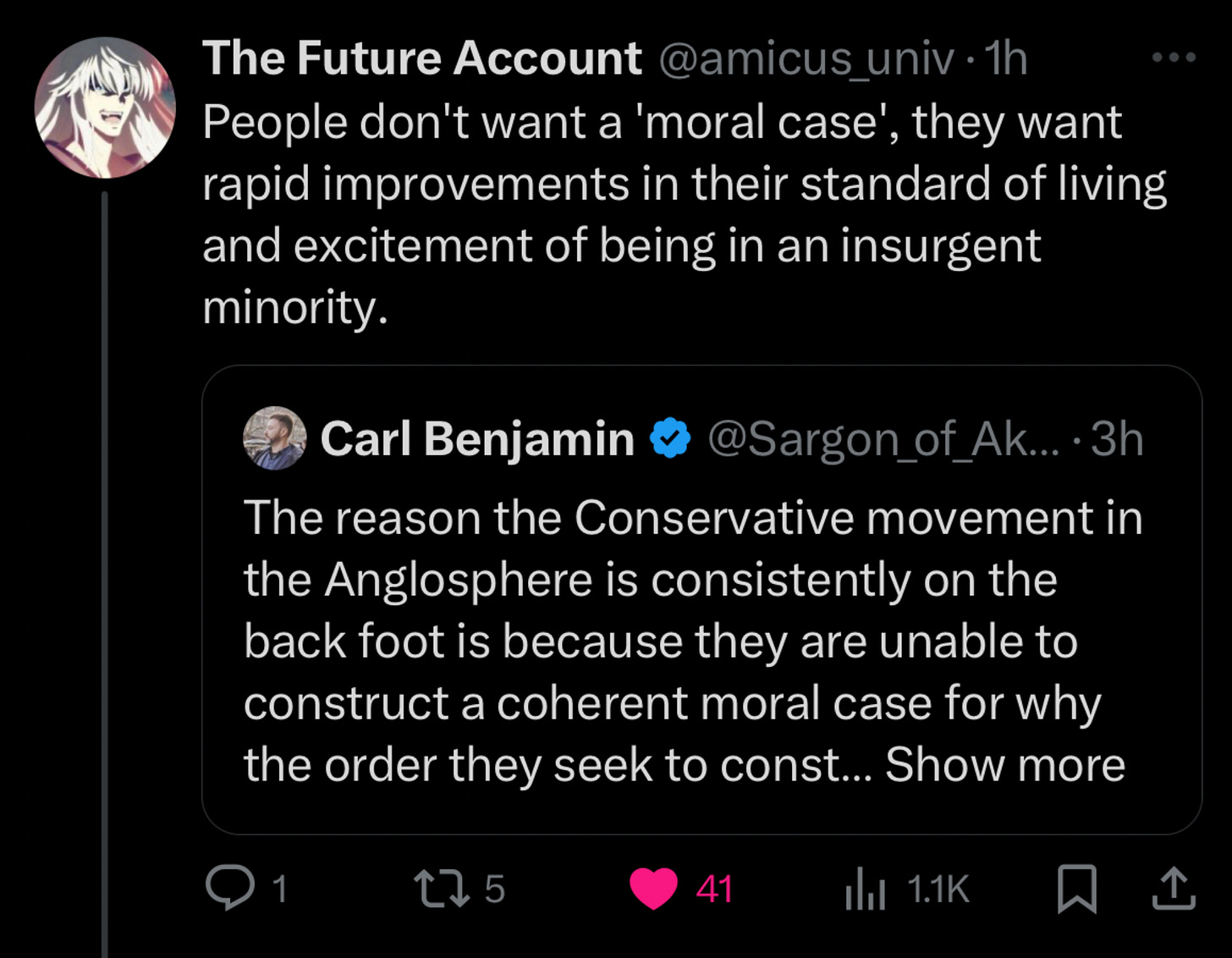
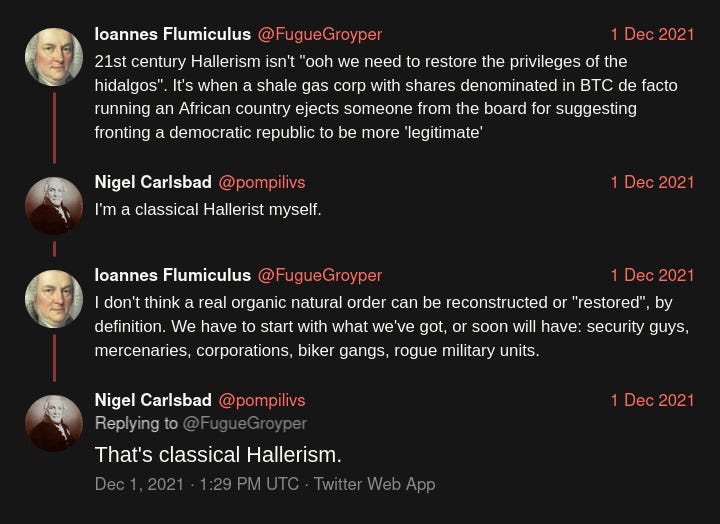




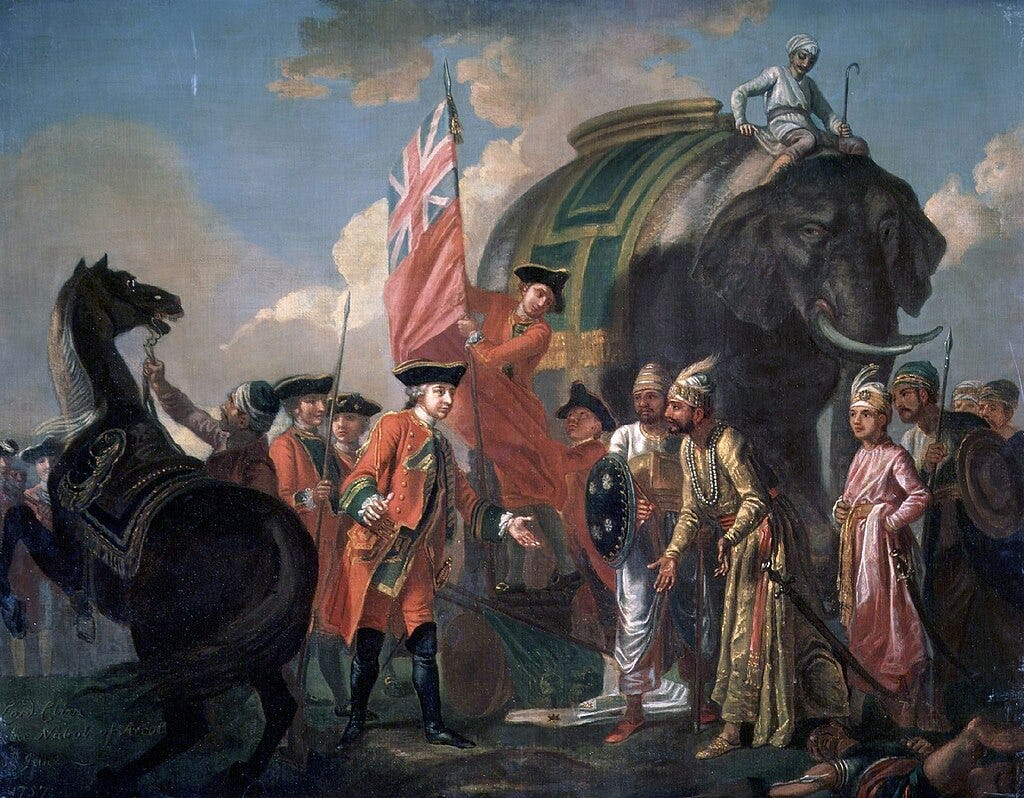
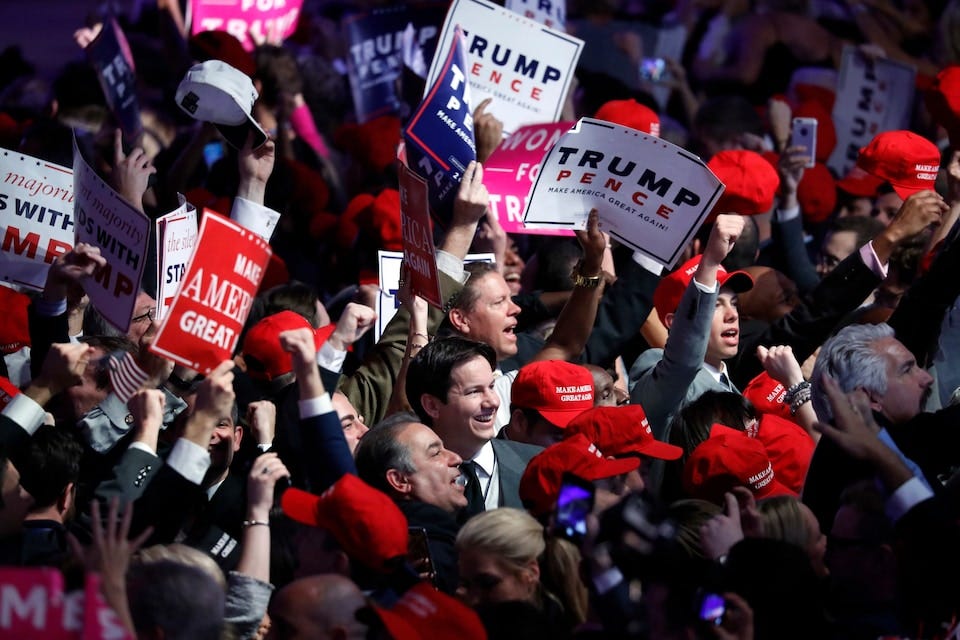








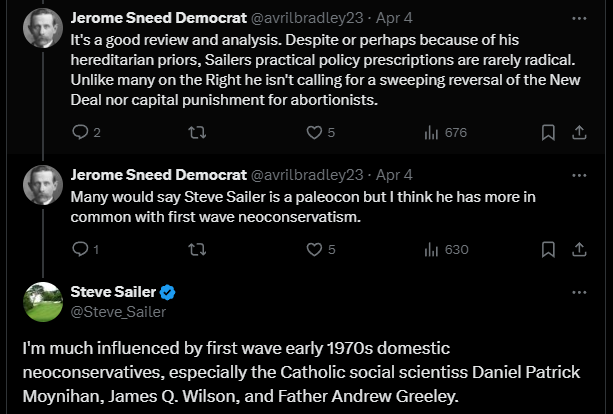

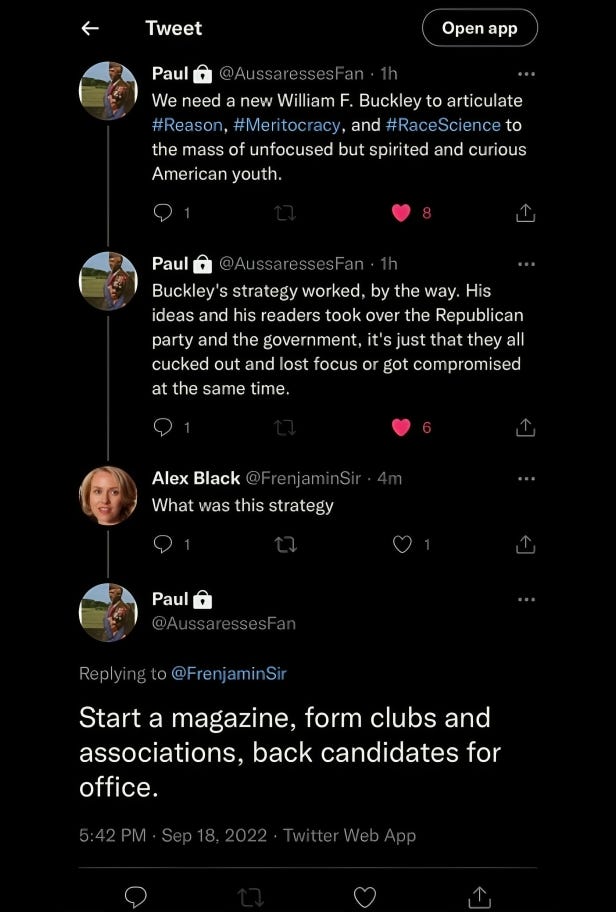




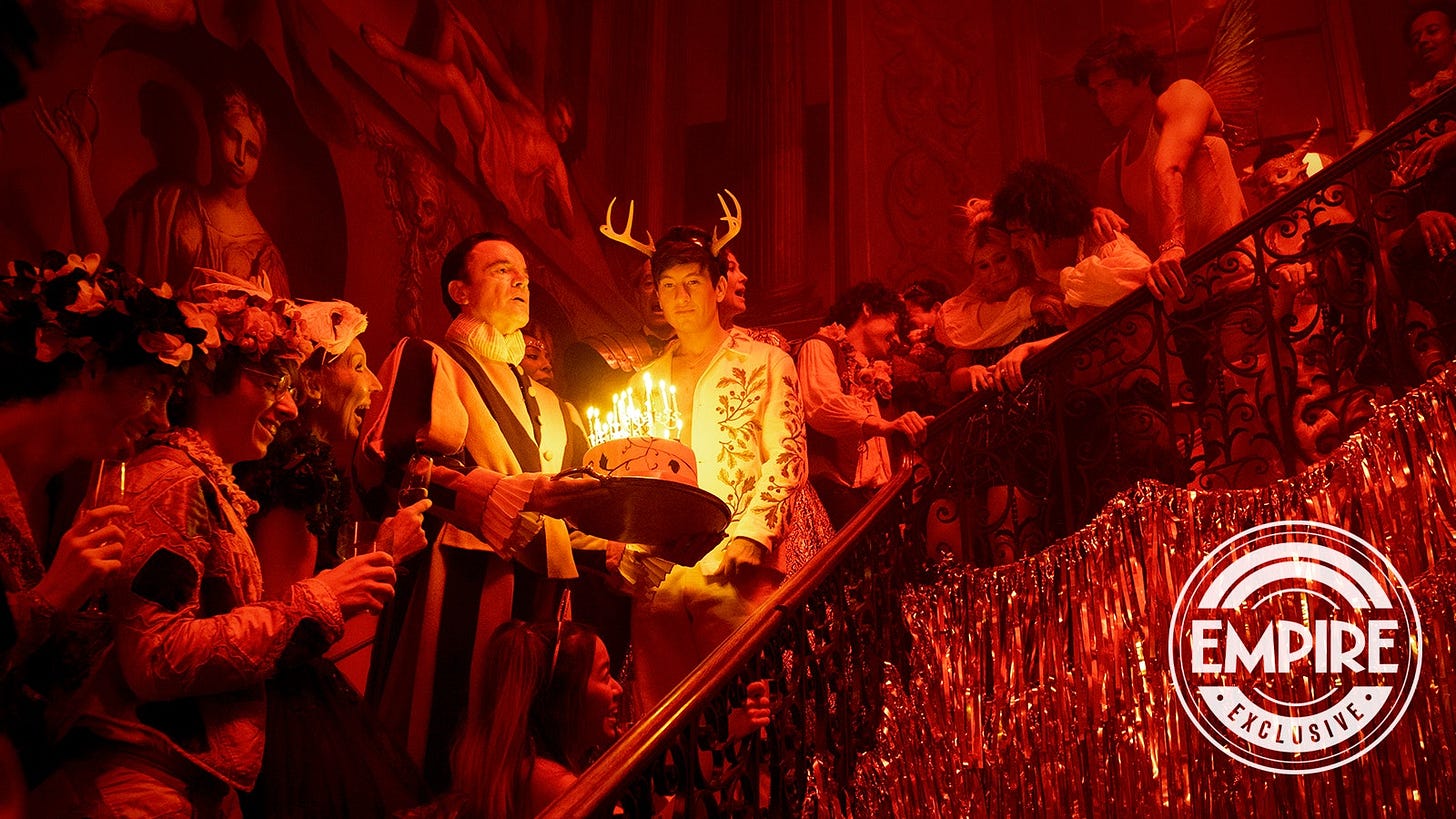
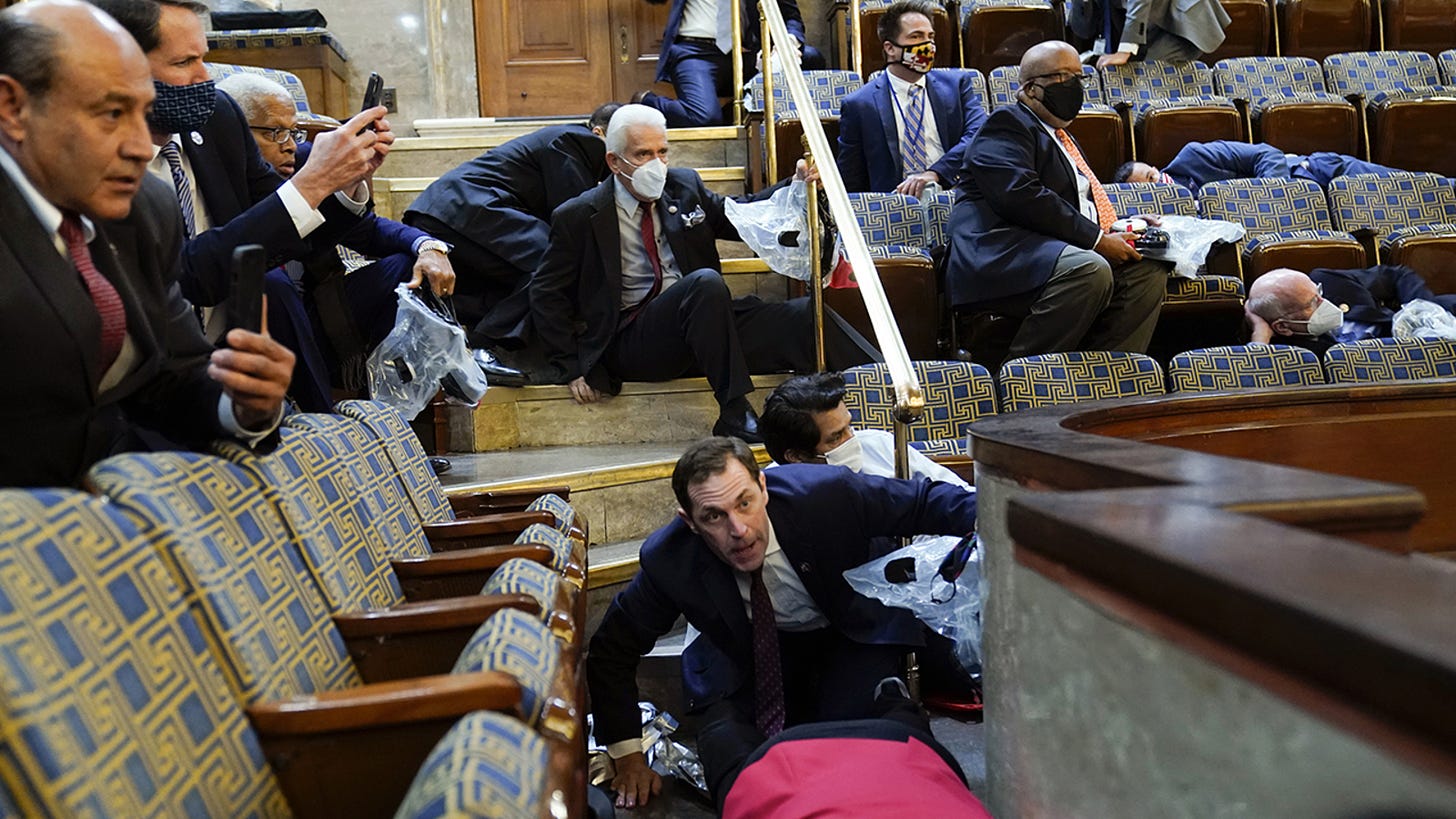


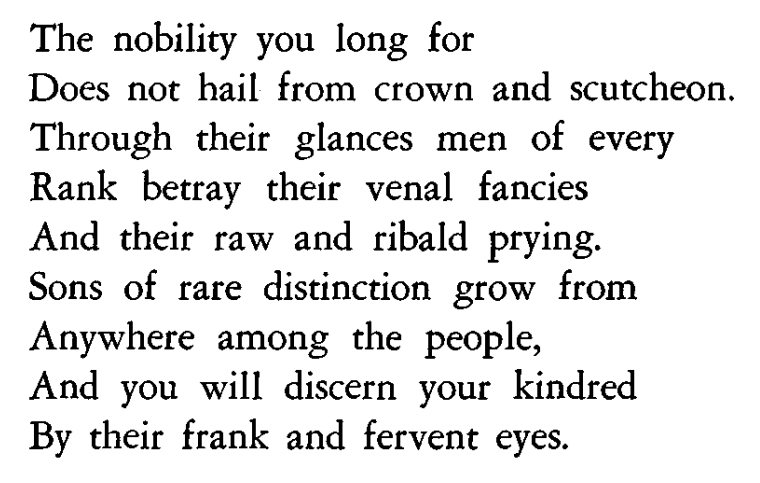









Uphold LF thought
This is the best thing you’ve written, at least that I’ve read. Will be coming back to it at least two more times to take it all in. Damn fine work